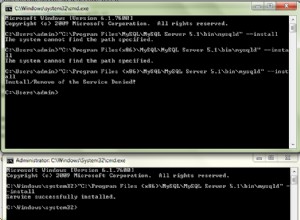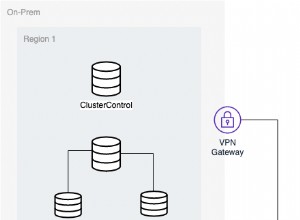O objetivo das funções em pipeline é alimentar funções TABLE(). Acho que não há como evitar. Infelizmente, temos que atribuir sua saída a uma variável PL/SQL. Não podemos atribuir uma função em pipeline a uma tabela aninhada como esta
nt := more_rows; devido a PLS-00653: aggregate/table functions are not allowed in PL/SQL scope
Então
SELECT ... FROM TABLE() tem que ser. Eu tenho uma solução um pouco diferente para sua consideração. Não sei se resolve o seu problema subjacente.
create or replace package body tq84_pipelined as
function more_rows return tq84_line pipelined is
begin
pipe row('ist');
pipe row('Eugen,');
return;
end more_rows;
function go return tq84_line pipelined is
nt1 tq84_line;
nt2 tq84_line;
nt3 tq84_line;
nt0 tq84_line;
begin
nt1 := tq84_line('Mein','Name');
select *
bulk collect into nt2
from table(more_rows);
nt3 := tq84_line('ich','weiss','von','nichts.');
nt0 := nt1 multiset union nt2 multiset union nt3;
for i in nt0.first..nt0.last
loop
pipe row(nt0(i));
end loop;
return;
end go;
end tq84_pipelined;
/
Como eu tenho certeza que você está ciente (mas para o benefício de outros buscadores), a sintaxe MULTISET UNION para glomming collections foi introduzida no Oracle 10g.
Esta versão do GO() produz a mesma saída que sua implementação original:
SQL> select * from table( tq84_pipelined.go)
2 /
COLUMN_VALUE
-------------------------
Mein
Name
ist
Eugen,
ich
weiss
von
nichts.
8 rows selected.
SQL>




